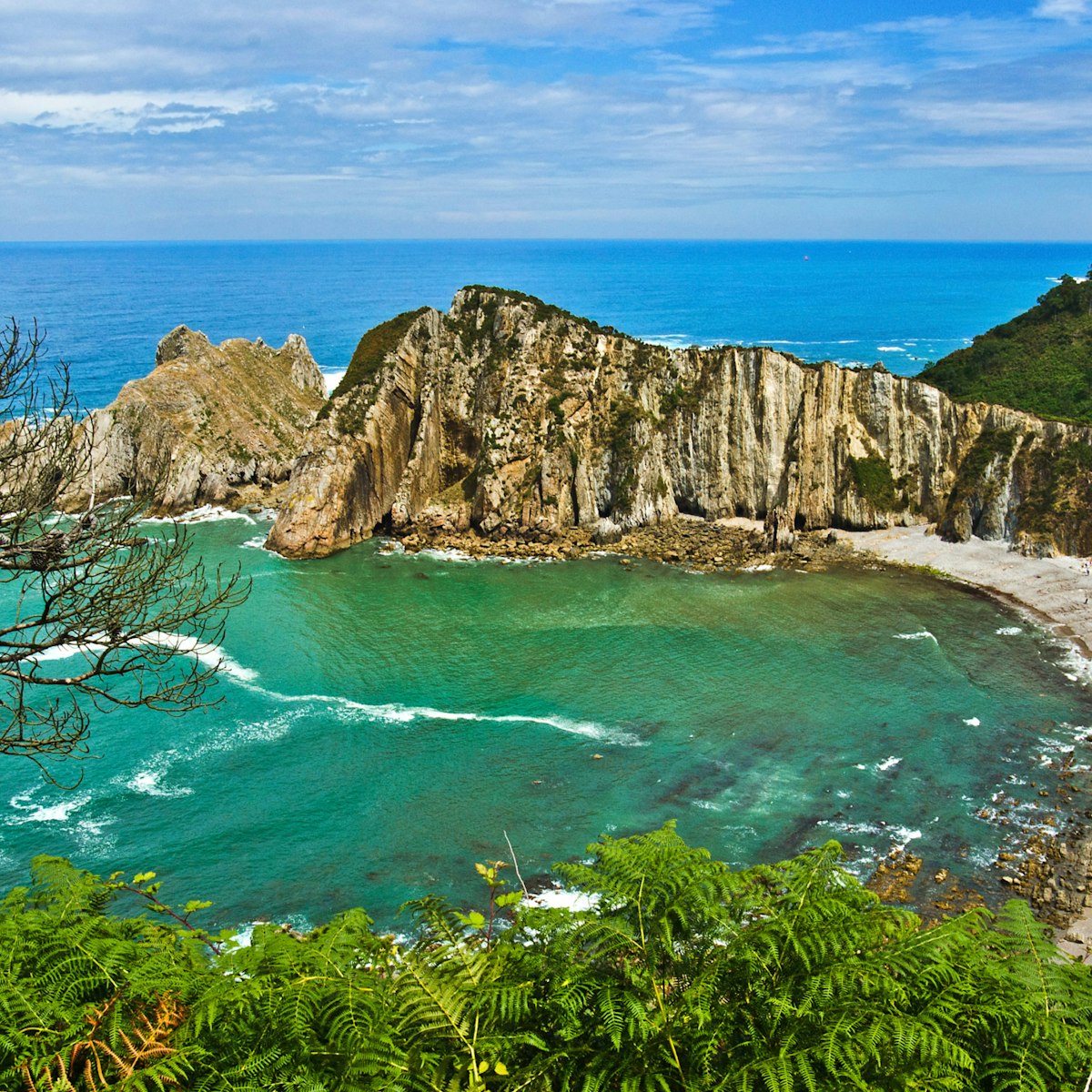Oviedo's stunning cathedral complex was built mainly in Gothic and baroque styles between the 13th and 18th centuries. But its origins and greatest interest lie in the World Heritage–listed Cámara Santa, a pre-Romanesque chapel begun in the 8th century by Alfonso II of Asturias to house important holy relics.
Visitors pass through the Gothic naves of the main church to reach the Cámara Santa with its collection of sacred relics and medieval treasures, including two jewel-encrusted gold crosses. These items are viewed from the Sala Apostolar, whose remarkable Romanesque sculptures of the 12 apostles are in the style of Maestro Mateo, creator of Santiago de Compostela’s Pórtico de la Gloria. Alfonso II presented the Cruz de los Ángeles (Cross of the Angels) to the cathedral in 808 CE, and it’s still Oviedo’s city emblem. A century later Alfonso III donated the Cruz de la Victoria (Cross of Victory), the emblem of Asturias, whose gold covering is said to encase King Pelayo's standard from the battle of Covadonga.
The Cámara Santa also contains the Santo Sudario, a cloth said to have covered Christ’s face after his death (the one on display is usually a replica). Turning to leave, you’ll see the heads of the Virgin Mary, Christ and St John on Calvary remarkably sculpted from a single block of stone above the doorway; their bodies were originally painted on the wall below.
Upstairs, the museum displays an extensive collection of religious art and sculpture. From here you descend to the cloister, whose original ground-level framework of pure 14th-century Gothic arches – rare in Asturias – is overlaid with an 18th-century baroque upper storey.



